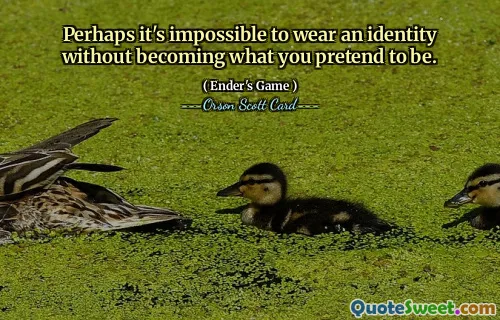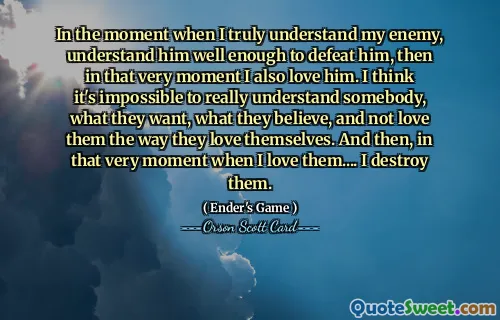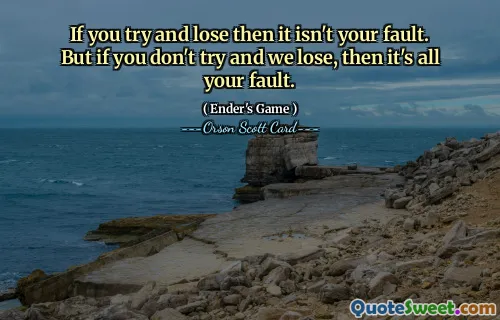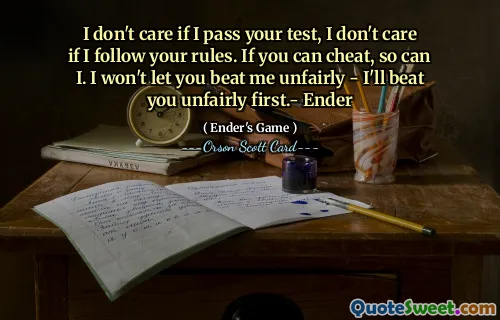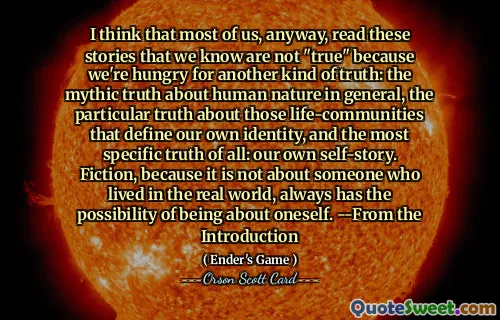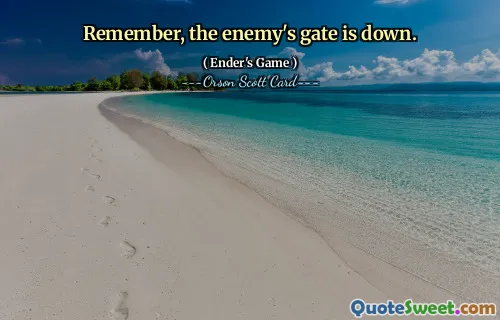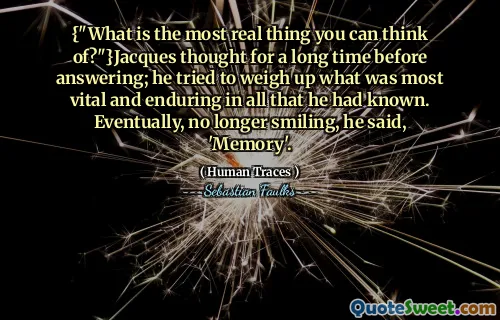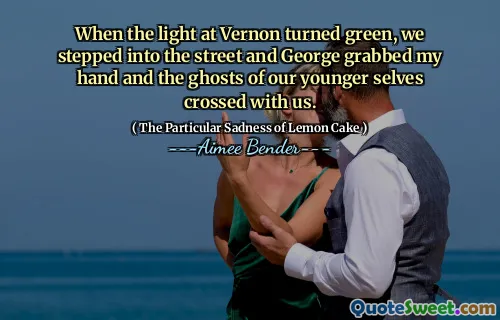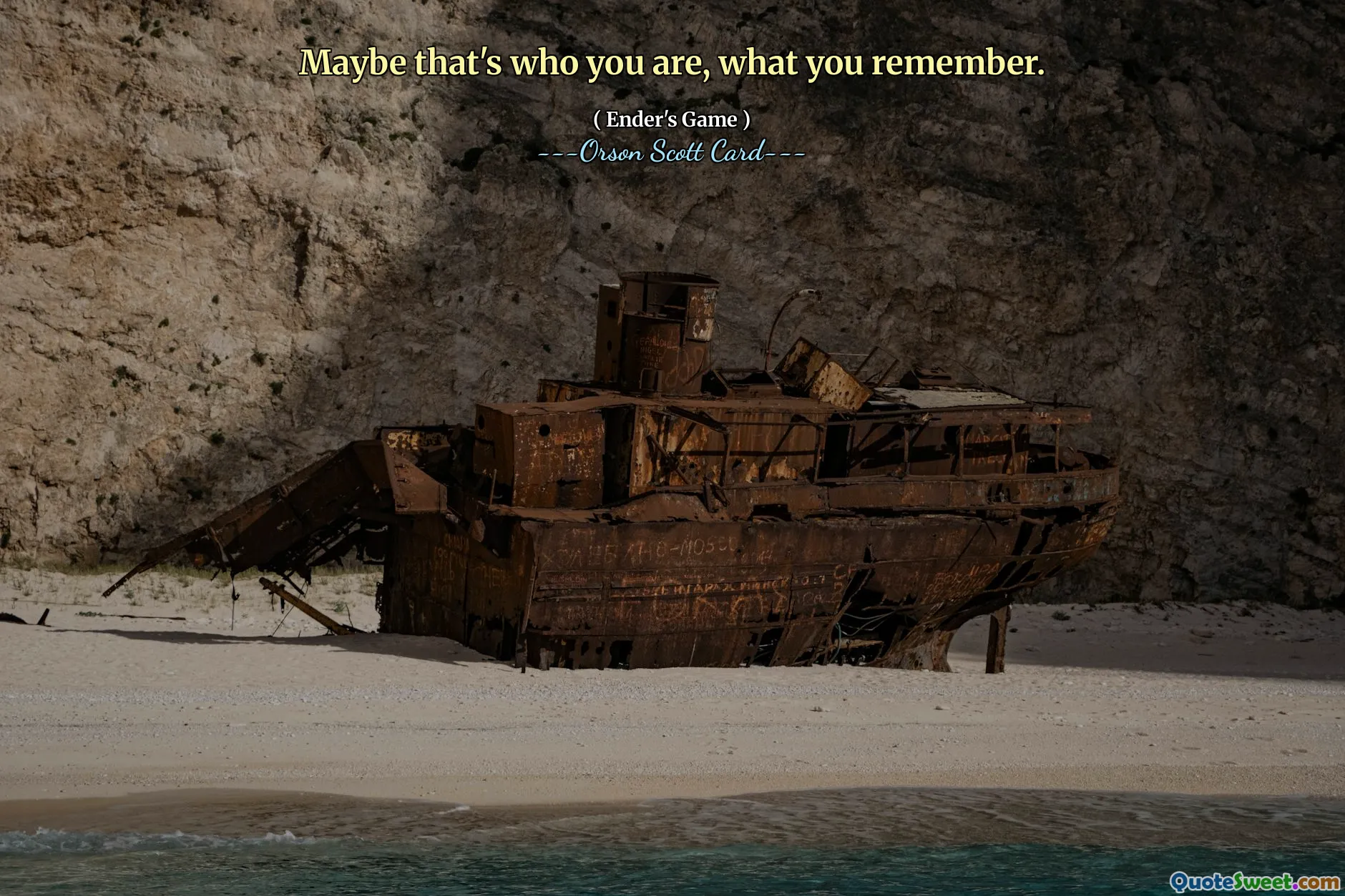
Maybe that's who you are, what you remember.
This quote invites reflection on the idea that our true identity is deeply intertwined with our memories. It suggests that who we are may not solely be defined by our current actions or circumstances, but rather by the memories we hold and the way these memories shape our perceptions of ourselves. Our memories act as both a record and a filter for our experiences, influencing our decisions, reactions, and sense of identity. They serve as a personal history that molds our understanding of the world and our place within it. In this light, losing certain memories can feel like losing parts of ourselves, while recalling cherished moments can reaffirm and strengthen our sense of purpose and belonging.
Understanding oneself is a complex process that often involves delving into past experiences and examining how they have impacted our present. Memories can serve as anchors that offer stability or as mirrors revealing aspects of our personality hidden beneath daily consciousness. This quote subtly hints at the importance of memory in shaping authenticity; perhaps, by looking at what we remember, we gain insight into who we truly are or who we aspire to be. Such a perspective encourages us to value our histories and embraces the notion that our identity cannot be entirely separated from the stories we tell about ourselves.
In the context of personal growth or change, contemplating this quote can prompt introspection about what memories we prioritize and how they influence our ongoing narrative. It challenges us to consider whether our sense of self is fluid or more fixed, and how consciously we engage with our past in crafting our future. Ultimately, it underscores the idea that understanding our memories is synonymous with understanding ourselves.
